Lauded by some as the greatest movie ever made, this exuberant hit piece against one of America’s wealthiest men is a true classic. But it ended up destroying the meteoric career of the young prodigy who made it, Orson Welles, and revealed more about its creator than the target. This made the film a tragedy in ways far beyond what Welles intended.


The attitude of the production is set right at the beginning of the film as the stark open face type appears silently in brilliant white against a solid black background. In a darkened movie theater, the effect must have been very dramatic. I could have typed “tone of the production,” but attitude is the correct word -- for the le’infant terrible known as Orson Welles was all attitude at all times. Not quite shock effect, but a clear and loud demand for attention is made by this opening title. Which turns out to fit the story of Charles Foster Kane very well as the story unwinds.


The atmosphere becomes film noir, if not that of a horror film in the first scenes shown of a decaying palatial estate shrouded in fog. With Bernard Herrmann providing the score, a feeling of unease is generated. Having always heard of the greatness of the movie, I can remember wondering just what I’d gotten myself into the first time I watched it. This was not the kind of beginning I was expecting. “What is this, a Universal Pictures horror film?” I mused.
Then the most famous single word line in movie history is uttered and it happens to be the first word in the movie.


Fortunate of me to have forgotten to turn off the captioning, eh? With that softly spoken word, the man who utters it dies and drops a snow globe he had been clutching. As it rolls and shatters on the floor, the mystery that drives the story begins.

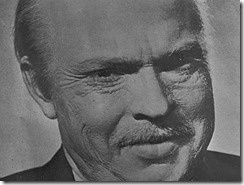
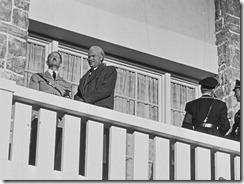

A newsreel covers the death of Charles Foster Kane and provides the broad strokes of the life of one of the most wealthy men in America, from his humble youth to uncountable riches and fame to finally dying a recluse. It is his failure in politics that catches the eye the most, especially his declaration that there “will be no war in Europe.” In itself, this is an impressive sequence that speedily tells us about the main character. Despite that, Kane is hard to peg down, being a man called a communist by business and a fascist by labor. There remains a sense of mystery about him. The date is 1941.
The newsreel ends and we are introduced to the reporter who will be our proxy in investigating the mysterious tycoon. Jerry Thompson will be our eyes and ears trying to find out who this mysterious “Rosebud” is. It is his interviews with associates of Kane that form the narrative of the movie in what can be a dizzying shift of times and settings. It is all executed with great gusto and is never confusing, which is no small trick.
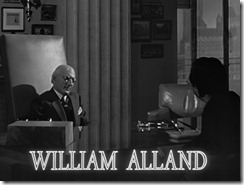
That’s William Alland playing Thompson on the right. Interesting how he doesn’t get his face shown in the credits like the rest of the cast. But if he is our stand in, it makes sense. But it is more likely he was more comfortable behind the scenes since he became a producer of famous and not so famous B-movies of the 1950’s including The Creature from the Black Lagoon.

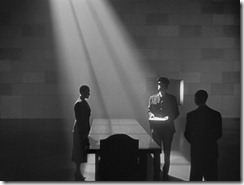
After the first failure to interview Kane’s second wife, a drunken singer in a nightclub, Thompson finds his way to the memorial archives of Walter Parks Thatcher. The “bookends” set in the present time are good, snarky fun with the archives looking like something out of a German silent film as the beleaguered reporter deals with the woman in charge. Allowed to read one section of Thatcher’s memoirs under a strict time limit in the vast and lonely room, Thompson gets a glimpse into the young Charles Foster Kane from 1871.

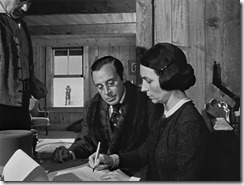
What we get to see is an overly energetic boy who comes off as something of a brat despite his poverty. Thatcher is the banker who comes to take the boy away as his mother Mary Kane has come into unexpected wealth. Determined that Charles have a completely different life, she signs him over to go live in Colorado. Not having been warned about this, the boy does not take it well.
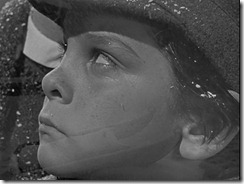

So begins his resentment against the banker put in charge of his life. It is something that will motivate him for years to come.

Mary Kane’s actress, Agnes Moorehead, is best known for being the scheming mother-in-law in the Bewitched television series, but like most of the cast made her film debut in Citizen Kane. She was a much better actress on the silver screen than the idiot box.
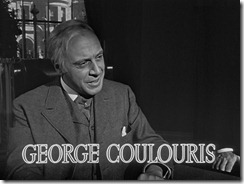
As the stuffy and disciplined Thatcher, English actor George Coulouris made an indelible impression that launched a long career as a character actor. His often exasperated performance made for an excellent foil against the resentful Welles.
Next person for Thompson to visit is Mr. Bernstein who still manages the newspaper syndicate Kane built up. There we insight into the young man who was Charles Foster Kane since Bernstein was there from the beginning.
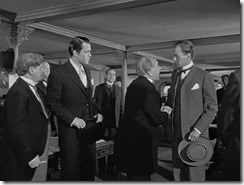
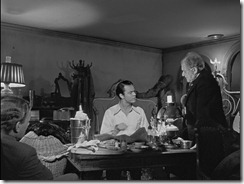
When Kane comes into his inheritance he has no interest in being the dutiful head of a corporation. Instead, he wants to play with a small newspaper, The New York Enquirer. Why? Because it would be “fun.” That care free attitude makes the scenes of taking over the staid little paper great fun. There is a gleefully manic energy that suffuses every moment, making them sparkle.

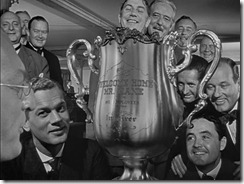
Lest you think there isn’t any drama, it is also here that Kane establishes himself as the protector of the little guy against big business. But it also shows his growing narcissism and willingness to say or do anything to accomplish his goals. Not to mention his great ambition and even greater appetite for excesses.
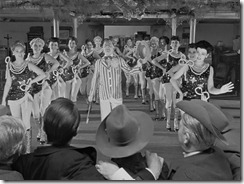
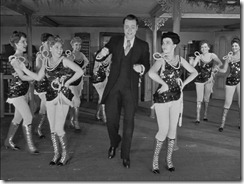
A scene with dancing girls at a celebratory party for the newspaper’s success is a good illustration of Kane’s narcissism. It is ridiculously over the top with a song sung about him (that becomes a musical motif for the rest of the film), but that isn’t enough attention for the man. No, he has to dance with the girls and become the literal center of attention.
The charisma, hucksterism, and theatrical flair make him compelling fun for his employees and us, the audience, to follow. I can’t imagine another actor being able to pull this off the way Orson Welles did. Hard to believe that he was only 24 when he made this movie.
The interview with Mr. Bernstein concludes with Kane marrying his first wife, the niece of the President of the United States. Who was Rosebud? Bernstein doesn’t know, but he does offer an interesting theory.
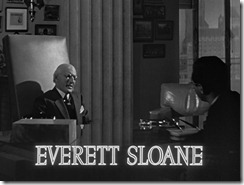
Everett Sloane’s performance as Mr. Bernstein is a delight in every scene he is in. A warm sense of humanity pervades him and I couldn’t help liking the man. Sloane went on to some success in television but tragically committed suicide in 1965.

Another member of the Mercury Theater troop was Erskine Sanford. His part as editor in chief Carter is brief and purely comedic. But like every actor in this film, he gets his moments.
The next stop on Thompson’s quest for Rosebud is at a nursing home where Kane’s former best friend, Jedediah Leland resides. Age hasn’t been kind to the man who was once closest to Kane and there is much bitterness as well. Perhaps he holds the key to the mystery?
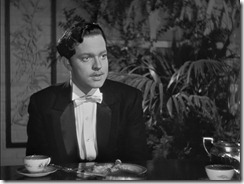
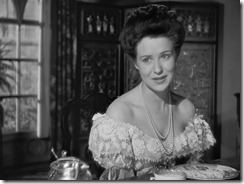
From Leland, we find out about the darker side of Kane… and perhaps what motivates him as well. After the whirlwind romance and marriage to Emily Monroe Norton, the two lovebirds slowly drift apart in an inventively staged sequence showing their breakfasts together over the years. Deftly done with attention to wardrobe and makeup conveying the passing of the years, it gives a real sense of slow building alienation between two people. Pay attention to the newspapers they are reading at the end.
While his marriage is deteriorating, Kane’s political ambitions are growing. Not content, no… never content with the amount of attention he is getting, the wealthy man desires office and believes that he will be President one day. But like far too many powerful men, he falls prey to a weakness in the form of a younger woman.
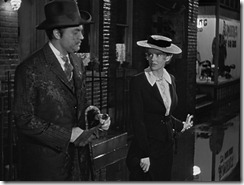
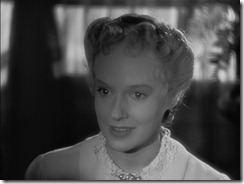
Enter Susan Alexander, or Susie, as Leland calls her. A chance meeting on the street introduces the powerful man to a pretty young thing suffering from a toothache. What follows would be charming and sweet except for the infidelity involved and something more disturbing. Watch how Susan flirts with Kane, playing him perfectly despite her pain. She is cold, calculating, and seductive right off the bat. There may not be much going on upstairs, but Susie knows what she is doing.
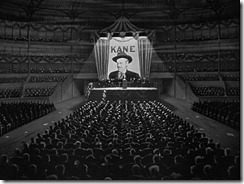
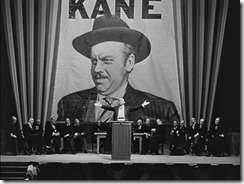
In his quest for power, Kane decides it is time to run for governor of the state of New York. He’s the “fighting liberal” out to take down “Boss” Jim Gettys so the poor will be protected. So confident is Kane that he promises his first act will be to prosecute Gettys for corruption.
Problem is that someone has informed Emily about Susan. Confrontation follows in Susie’s apartment and here Kane’s arrogance manifests to the point of madness. Offered a way out where only he will be hurt and others protected, Kane refuses to give in because he simply won’t do what someone else tells him to do.
And with that, we see what a selfish monster Charles Foster Kane truly is.
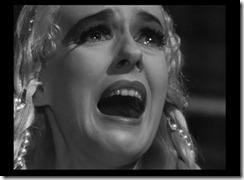
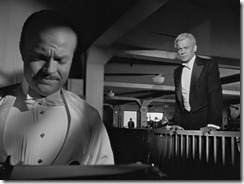
Though we open the movie with Kane’s death, there is an air of creeping dread about what follows after this reveal. The luster is gone, the charm is gone, and so is any likeability. So it is no surprise that Leland’s friendship becomes a casualty of Kane’s infidelity, though the final stake is driven through it by an opera review. That scene alone is worth the ticket price… err, rental fee.

The first movie role for Joseph Cotton was a meaty one as Jed Leland. He would later go on to other acclaimed roles but is best remembered for this and his starring turn in The Third Man (which also had Welles in it.) Jed is charming and is Kane’s failed conscience. You get the feeling he hits on the nurses despite his age.
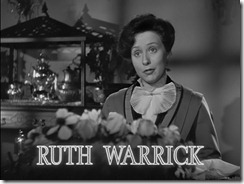
Playing Kane’s first wife, Emily Monroe Norton was Ruth Warrick. She is best remembered for her much later television soap opera starring roles. With a regal presence, she is very believable as a President’s niece. Or what you would like a President’s niece to be like!
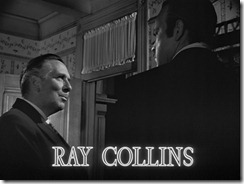
Though only briefly in the movie as Jim Gettys, Ray Collins was another rookie who ended up with a long career in movies and television. Though a tiny role compared to others, he delivers one of the most prophetic lines of the film.
Now comes the final act in this American tragedy and for that Thompson goes back to Susan Alexander who finally grants him an interview. The sad and apparently alcoholic singer lets him know that she never wanted to be a singer. It was Charlie who wanted it. As the flashback unfolds, we get to see how terrified the untalented girl was before going on stage. But the real story is played out in the reactions of two people in the audience.
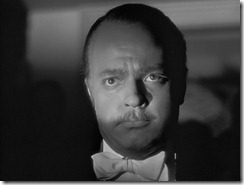
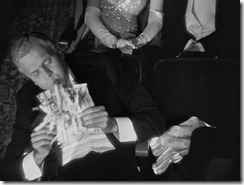
The reactions are by Charles Foster Kane and Jed Leland. Obsessive and utterly dedicated to watching Susan, Kane goes from a smile on his face to a much more interesting expression as the show goes on. On the other hand, Jed starts out plastered and bored. He stays that way until the curtain falls.
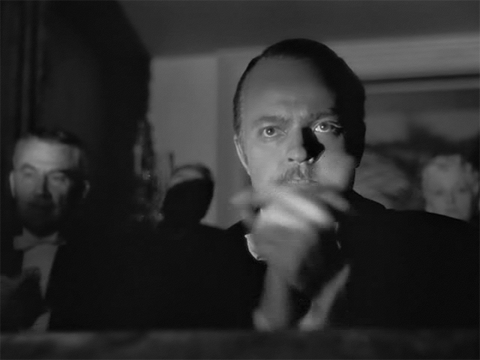
Welles is riveting in this scene and this animated GIF of his forceful applauding captures it well. It is no surprise that it spread across the Internet and full credit goes to the anonymous creator. Used to getting his way, Kane acts as if he can applaud Susan to stardom. His indomitable will forces her to keep performing even as her misery increases. Never one to listen, it takes extreme measures by his wife to change his mind.
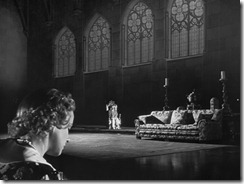

After that, Kane retreats to his vast castle that he has built in Florida. Named Xanadu after Kubla Khan’s city, it is an opulent and never finished hermit’s cave. Oh there are guests, but it is clear he has retreated from the world and has no wish to re-engage with it. Every scene there is filled with emptiness and echoes, like a mausoleum for someone who hasn’t quite managed to die yet. Young and still vibrant, Susan is miserable there and spends her time putting together jigsaw puzzles. Many jigsaw puzzles.


It is clear things can’t last and after a disastrous “picnic,” Susan leaves the aged tycoon. He doesn’t take it well to say the least, after all it is about how he will look after this gets out. Enraged, Kane destroys her bedroom only stopping when he picks up a snow globe. Yes, that snow globe.
At this point, Thompson realizes that he is starting to feel sorry for Mr. Kane. I’m not sure I do.

Turning in a star making performance as Susan Alexander, one would have thought that Dorothy Comingore would have had as bright a career as the rest of the cast ahead of her. But the former Hollywood bit part actress passed up too many roles and then found herself blacklisted as a communist in 1951. Like Susan, she ended up an alcoholic and died at the age of 58.

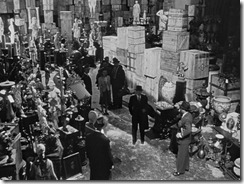
With no one left to interview, Thompson arrives at Xanadu where all the treasures collected by Kane are being organized and prepared to be sold off. The oily valet, Raymond, is the last hope the reporter has to find out who or what Rosebud was to the deceased tycoon. All the man can give is a small hint, for he does not know either. Now joined by other reporters, Thompson wanders through the wealth and ponders that all he got were pieces to a puzzle. Frustrated, he leaves and we, the audience, are the only ones who get the answer.

Another small but memorable part was that of Raymond, played by Paul Stewart. He was a man you could distrust on sight, which made for a good career on screen and television before adding directing to his resume.

Bet you thought I was going to give the big reveal away, didn’t you?
Thoughts
What a film! Once again I have to state my amazement that a 24 year old made this movie and also turned in one of the greatest acting performances of all time. Not once do you doubt Kane’s age no matter what part of his life is being portrayed. The rest of the cast are exceptional for Welles was an actor’s director, to be sure. Overlapping dialogue and extremely creative lighting are some of the little things that make this movie sensational in the true sense of the word. The whole production is a tour de force with innovative editing, camera angles, makeup, and even special effects.
Yet it is the story that makes this film so brilliant. The structure is very clever, with the interweaving accounts over different era’s in the main character’s life. In of itself, the story is a compelling one and audaciously told.
But when you understand that it is an attack on William Randolph Hearst and his mistress, Marion Davies, all while that powerful man was still living it becomes more than audacious. My DVD is the two disc special edition of Citizen Kane and the second disc explains the real story behind the scenes. The American Experience episode, The Battle Over Citizen Kane, lays things out very accurately and is a must see.
With Welles versus Hearst, we finally get the answer to the age old question of what would happen when an unstoppable force meets an immovable object. That answer is ruination for both. Hearst had his pride and reputation damaged while Welles became a has been overnight. But like all clashes, it is usually someone else who gets injured and the actress Marion Davies was very unfairly maligned by the character of Susan Alexander. While she was raised to be a gold digger, she was intelligent, witty, warm, and ended up falling in love with Hearst despite herself.
Not that I’m out to defend Davies as a moral paragon – she clearly wasn’t, being a kept mistress and promiscuous to boot. But she wasn’t the shrill, whining child shown in the movie. It was probably that depiction that set William Randolph Hearst off and motivated him to destroy Welles. In fact, he nearly succeeded in having the film copies physically destroyed!
While Citizen Kane is considered a classic, it was a complete bomb in 1941. While it managed to get just one Oscar for Best Screenplay out of nine nominations, it actually lost money at the box office. It is no wonder RKO Pictures shelved it after its initial run. Fortunately, it saw a revival in the 1950’s and has risen in regard ever since.
However, there was one thing that struck me as I watched the movie again. It is eerie how much Kane’s life ended up predicting Orson Welles’ life later on. Somewhere in the making of the film, Kane stopped being Hearst and became Welles’ from the future. Charismatic, a hustler, a user of others, never happy unless in the spotlight, and ultimately alone in the end… These were shared characteristics of Kane and Welles.
That’s what really makes this movie a tragedy.
Is it the greatest movie ever made? Not in my opinion. It is brilliant and well done, but there are multiple movies I’d put above it. But I’ll never fault someone for saying it is, for it is a great movie indeed.
Also, keep an eye open for the use of reflections in multiple scenes. It makes me wonder if Welles was just enamored of how they looked or intended some hidden meaning.
Citizen Kane is not for children due to it being immensely boring to them. Intellectual teens and up will appreciate it, but don’t expect any heroes in the story. If you are an adult who likes older movies this is a must see.
Technical
This DVD was mastered from an amalgam of the best existing prints that could be found since the negatives were destroyed. As a result, some scenes seem sharper than others, though “beauty” filters are employed in some close ups. Visible hairs will annoy you once you see them and I can’t understand why they didn’t digitally erase them.
Sound is nice and clear, which is needed with the overlapping dialogues and Bernard Herrmann’s excellent score.
In September, a new Blu-ray edition is coming out and I hope they restore some of the visuals better for that.


















































